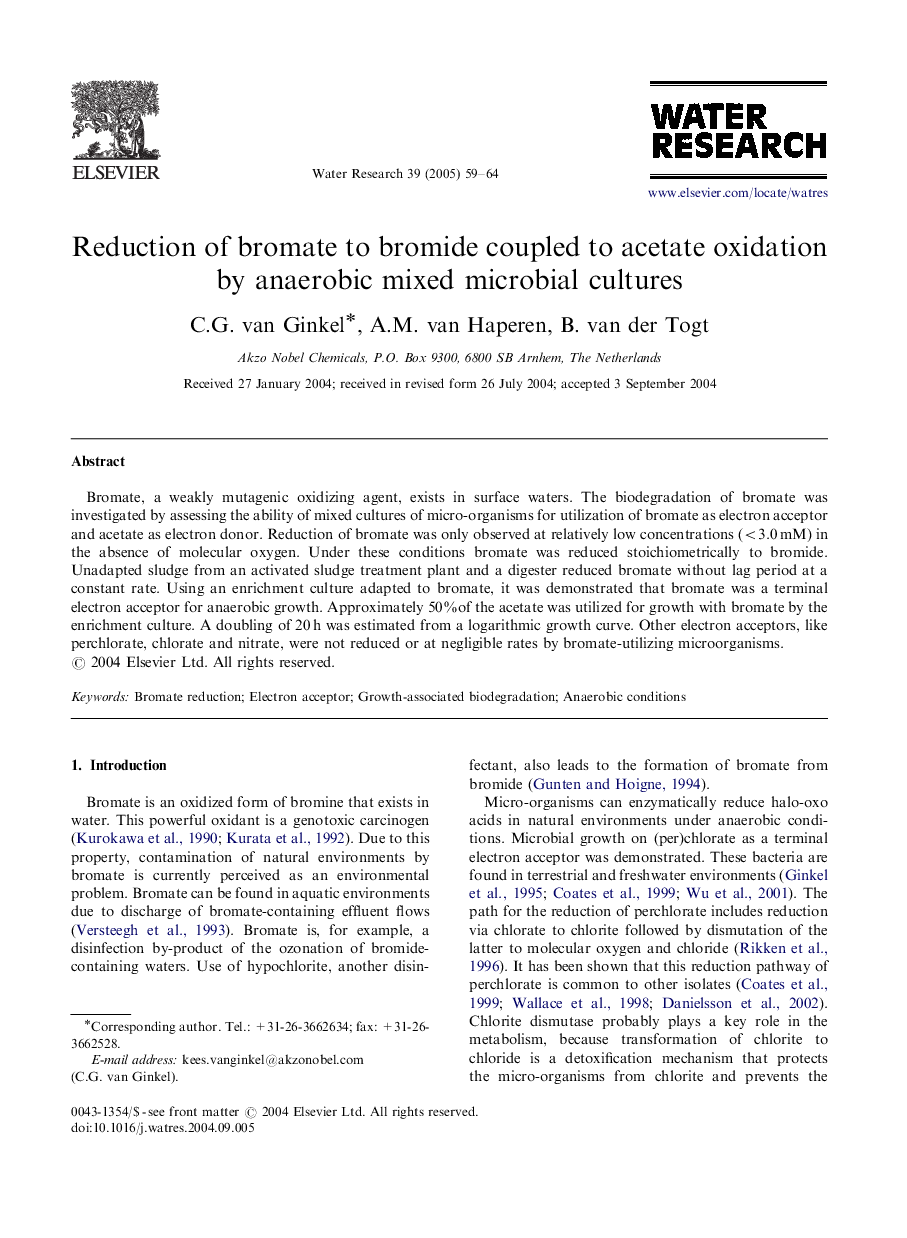| Article ID | Journal | Published Year | Pages | File Type |
|---|---|---|---|---|
| 9468167 | Water Research | 2005 | 6 Pages |
Abstract
Bromate, a weakly mutagenic oxidizing agent, exists in surface waters. The biodegradation of bromate was investigated by assessing the ability of mixed cultures of micro-organisms for utilization of bromate as electron acceptor and acetate as electron donor. Reduction of bromate was only observed at relatively low concentrations (<3.0Â mM) in the absence of molecular oxygen. Under these conditions bromate was reduced stoichiometrically to bromide. Unadapted sludge from an activated sludge treatment plant and a digester reduced bromate without lag period at a constant rate. Using an enrichment culture adapted to bromate, it was demonstrated that bromate was a terminal electron acceptor for anaerobic growth. Approximately 50%of the acetate was utilized for growth with bromate by the enrichment culture. A doubling of 20Â h was estimated from a logarithmic growth curve. Other electron acceptors, like perchlorate, chlorate and nitrate, were not reduced or at negligible rates by bromate-utilizing microorganisms.
Related Topics
Physical Sciences and Engineering
Earth and Planetary Sciences
Earth-Surface Processes
Authors
C.G. van Ginkel, A.M. van Haperen, B. van der Togt,
